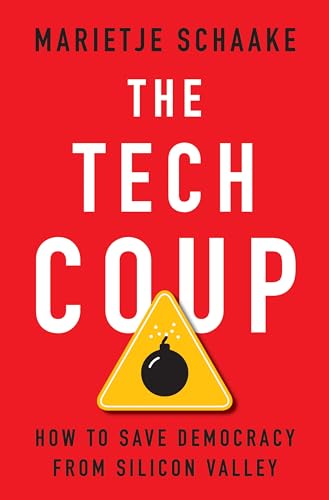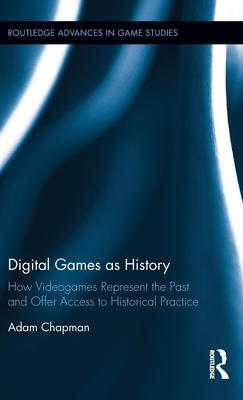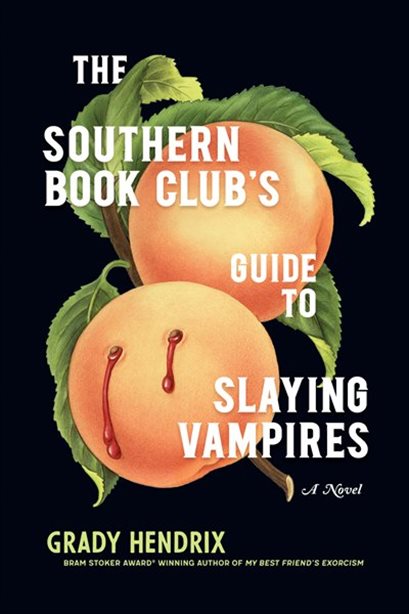In November, I found new jobs, proposed to Kamila (she said yes at the Main Train Station with no witnesses), and, as usual, read some books.

The Tech Coup: How to Save Democracy from Silicon Valley
I dedicated a separate article to this book. You can find it here.

Kamome Shirahama, 白浜鴎, Stephen Kohler
Very much skimmed through this one. The whole concept of „you have this great ethical dilemma with binary options“ is a bit overused, but since the heroines find a way around it instantly and the world is built around _anything is possible_ it is hard to really feel anything anymore. Hopefully it will get better in the next one.

On the Edge: The Art of Risking Everything
So, Nate Silver knows a lot of important people – and is also convinced that you can neatly separate human kind into two basic groups. He is, of course, member of the more rational, innovative, better group, into which he co-opts people quite randomly.
Also, he narrates his own book, including doing funny voices of different people. No connecting theme apart from „chance is complex“, lots of hubris, and „they are ATTACKING ME“ and no great value. It’s like if Taleb had less to say and was even more annoying / self-centered. Avoid.

I love Šumava. I grew up there, used it as a backdrop for some of my weirder games, and I’m endlessly fascinated by its stories.
This take goes in a direction that didn’t always work for me (the timeline shifts are very eh), and it has a few odd twists. But after some wrestling with it (the start is really slow, the frantic wandering through the woods is pretty confusing), it pulls you in, entertains, and is filled with tons of references, many of which don’t even lead anywhere, they’re just there (Rankel). And I think it’s pretty good that way.

The atmosphere build up is great, the ending is horrible, the pacing is all over the place in the weirdest ways possible. Considering it started just as a creepy pasta, this ended up much better than expected. Probably the most bizarre decision is the cover art: completely different atmosphere and misguiding altogether.
Overall, an entertaining quick read, with imho solid handling off-topic (native American spirits).

Digital Games as History: How Videogames Represent the Past and Offer Access to Historical Practice
A crucial foundational stone summarising decades of thought on both games and history. I can’t imagine wading into the topic without the frameworks it provides. A must-read for people engaging with games and history.

The basic idea, „future people count,“ is probably the weakest point of the book – because it mostly doesn’t really go anywhere and is rekindled many times over the course of it all, just with quite weak fuel and unclear end goals.
What is interesting are either things taken from other authors and reimagined in some ways (Ord on existential risks, Bostrom on AI mostly) and unexpectedly good and well-grounded work on moral values as a key and very, very changeable (as in “multiple options are possible”) framework of society. Those parts hit well, and we can see some attempts to negotiate between historical materialism and other theories of history – of course, ending up with „yeah, it depends“. What is a bit problematic is the look at history and its economic outputs: for example, considering the whole mysterious „medieval ages“ (srsly, what even are they for the author?) as a decidedly no-growth period is, imho, too strong a simplification.
All in all, still a solid book, and still would not base a movement on it.

The Southern Book Club’s Guide to Slaying Vampires
Well, it’s been all said in the other reviews. It just moves between satire and tries to be very serious, it gets very disturbing very fast (with a lot of random sexual assault) and it really feels a bit overdrawn.
At the same time, as a basic revenge fantasy / Southern gothic story it works passably well.


Around the World in 80 Games: A Mathematician Unlocks the Secrets of the Greatest Games
Maths and games! What could be more fun, aside from certified bangers like “watching paint dry” or “memorising Proust”? Well, do not worry, the game itself can be GAMIFIED, kinda – you can roll to decide what you will read.
And I tried following the author’s „randomise“ sugestion. Did not really work out and felt slapped on later to connect the text together somehow. Which is probably the best summary of the book: feels a bit slapped together, with no strong idea behind it.
Otherwise, it is a charming and reasonably well written trip into the world of games through eyes of mathematician, sometimes missing _a lot_ of points: especially the parts on RPGs or video games are mostly obsolete or even outright wrong: having moral qualms about killing people who can’t defend themselves is not some shocking invention of the author’s household, it is, well, quite important part of the game.
But apart from all those, still solid pop non-fiction with fun details on mostly super old games.

We picked this up with my partner as some light, just-before-sleep listening. So our expectations for that are really quite low: some light reading to wind down with.
And this starts promising. The basic idea is quite neat, the writing starts off promising, characters are quirky enough to be interesting and not too quirky to be all over the place.
Gradually, it got oh, so much worse. The murders start piling up, there are whole sections of extremely plain confessionals („I did this and that“) and the main plot gets entangled in many, many side plots with more and more unhinged ideas: and most often presented just by „character gets a full exposé by somebody else“). And with that, characters begin to turn into caricatures of themselves with very, very limited inner life and no development: the lonely guy GETS a random date, the super super spy solves everything (and nothing), people die left and right and all the loose ends are tied together by a random person walking around who suddenly says: „yeah, I did that and that“.
Neither the content nor the delivery are sadly not really working on any level. However, if you are dead set on getting that British mystery with old people, go on.

An excellent book in terms of historical analysis, theology, basic empathy, and the ability to formulate a broader theory of fundamentalism based on three examples (Orthodox Jews; Islamic fundamentalism – both Iranian and the Muslim Brotherhood; and American Christian fundamentalism). It’s written intelligently, briskly, and with enough insight to offer an alternative reading of history that actually makes sense of things (for example, the real effects of the Pahlavi modernization campaign weren’t exactly a banger for everyone).
What really drags it down, though, is the core assumption of dividing the world’s thinking into mythos and logos – two ways of interacting with text and the world, seen as fundamentally and completely separate. The reference to a distant past when “this division existed and the world was in balance” works to some extent as a contrast to fundamentalist, literal readings of certain apocalyptic movements, but the nostalgic evocation of a lost, balanced paradise and its deeper meaning is, much like the wailing of those who await the final battle tomorrow, simply nonsensical.
What’s nice is that the book, over 20 years later, hasn’t aged significantly – quite the opposite. Today, we can safely say that its cautious warning – “maybe Christofascism still has some strength in America” – is more than justified, and it’s literally happening.
With these caveats, I can definitely recommend it. You just have to keep in mind that the author is constantly trying to draw you into a vision of the world that, at its core, doesn’t really make sense – and only works as a framework for thought in a kind of experimental way.